Related Research Articles
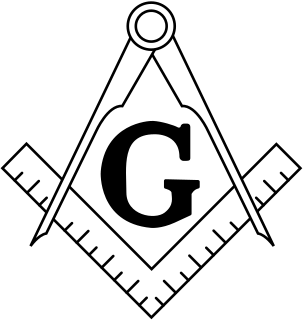
Freemasonry or Masonry consists of fraternal organisations that trace their origins to the local fraternities of stonemasons that from the end of the 14th century regulated the qualifications of stonemasons and their interaction with authorities and clients. Freemasonry has been the subject of numerous conspiracy theories throughout the years. Modern Freemasonry broadly consists of two main recognition groups:

Leonid Vitaliyevich Kantorovich was a Soviet mathematician and economist, known for his theory and development of techniques for the optimal allocation of resources. He is regarded as the founder of linear programming. He was the winner of the Stalin Prize in 1949 and the Nobel Memorial Prize in Economic Sciences in 1975.

Henry Sidgwick was an English utilitarian philosopher and economist. He was the Knightbridge Professor of Moral Philosophy at the University of Cambridge from 1883 until his death, and is best known in philosophy for his utilitarian treatise The Methods of Ethics. He was one of the founders and first president of the Society for Psychical Research and a member of the Metaphysical Society and promoted the higher education of women. His work in economics has also had a lasting influence. In 1875 he co-founded Newnham College, a women-only constituent college of the University of Cambridge. It was the second Cambridge college to admit women, after Girton College. Newnham College's co-founder was Millicent Garrett Fawcett. In 1856 Sidgwick joined the Cambridge Apostles intellectual secret society.
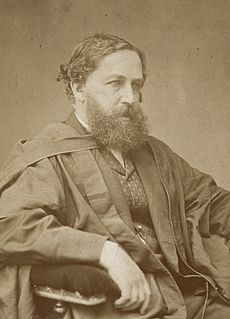
William Stanley Jevons FRS was an English economist and logician.

Arthur Cecil Pigou was an English economist. As a teacher and builder of the School of Economics at the University of Cambridge, he trained and influenced many Cambridge economists who went on to take chairs of economics around the world. His work covered various fields of economics, particularly welfare economics, but also included Business cycle theory, unemployment, public finance, index numbers, and measurement of national output. His reputation was affected adversely by influential economic writers who used his work as the basis on which to define their own opposing views. He reluctantly served on several public committees, including the Cunliffe Committee and the 1919 Royal Commission on Income tax.
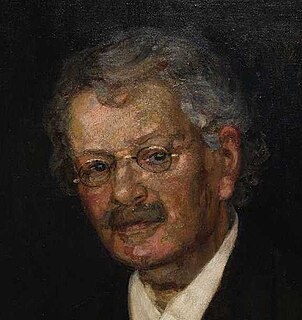
The Stockholm School is a school of economic thought. It refers to a loosely organized group of Swedish economists that worked together, in Stockholm, Sweden primarily in the 1930s.
George Foot Moore was an eminent historian of religion, author, Presbyterian minister, 33rd Degree Mason of the Ancient and Accepted Scottish Rite, and accomplished teacher.

Georgism, also called in modern times geoism and known historically as the single tax movement, is an economic ideology holding that while people should own the value they produce themselves, the economic rent derived from land, including from all natural resources and the commons, should belong equally to all members of society. Developed from the writings of American economist and social reformer Henry George, the Georgist paradigm seeks solutions to social and ecological problems, based on principles of land rights and public finance which attempt to integrate economic efficiency with social justice.

Albert Venn Dicey (1835–1922), usually cited as A. V. Dicey, was a British Whig jurist and constitutional theorist. He is most widely known as the author of Introduction to the Study of the Law of the Constitution (1885). The principles it expounds are considered part of the uncodified British constitution. He became Vinerian Professor of English Law at Oxford, one of the first Professors of Law at the London School of Economics, and a leading constitutional scholar of his day. Dicey popularised the phrase "rule of law", although its use goes back to the 17th century.

Frank William Taussig (1859–1940) was an American economist who is credited with creating the foundations of modern trade theory.

James Edwin Thorold Rogers, known as Thorold Rogers, was an English economist, historian and Liberal politician who sat in the House of Commons from 1880 to 1886. He deployed historical and statistical methods to analyse some of the key economic and social questions in Victorian England. As an advocate of free trade and social justice he distinguished himself from some others within the English Historical School.
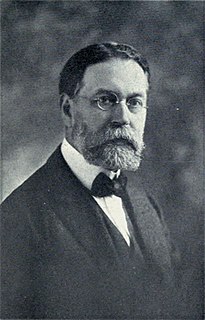
Edwin Robert Anderson Seligman (1861–1939), was an American economist who spent his entire academic career at Columbia University in New York City. Seligman is best remembered for his pioneering work involving taxation and public finance. His principles for a progressive federal income tax were adopted by Congress after the passage of the Sixteenth Amendment. A prolific scholar and teacher, his students had great influence on the fiscal architecture of postcolonial nations. He served as an influential founding member of the American Economics Association.
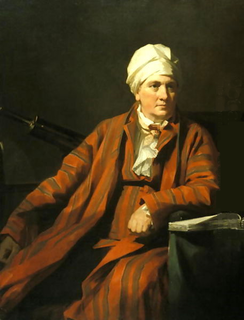
John Robison FRSE was a British physicist and mathematician. He was a professor of natural philosophy at the University of Edinburgh.

Richard Theodore Ely was an American economist, author, and leader of the Progressive movement who called for more government intervention in order to reform what they perceived as the injustices of capitalism, especially regarding factory conditions, compulsory education, child labor, and labor unions.
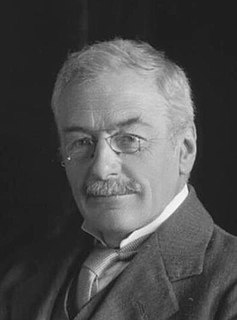
Francis Crawford Burkitt was an English theologian. As Norris Professor of Divinity at the University of Cambridge from 1905 until shortly before his death, Burkitt was a sturdy critic of the notion of a distinct "Caesarean Text" of the New Testament put forward by B. H. Streeter and others.
Manchester University Press is the university press of the University of Manchester, England and a publisher of academic books and journals. Manchester University Press has developed into an international publisher. It maintains its links with the University.

The organisation known as the Premier Grand Lodge of England was founded on 24 June 1717 as the 'Grand Lodge of London and Westminster'. Originally concerned with the practice of Freemasonry in London and Westminster, it soon became known as the Grand Lodge of England. Because it was the first Masonic Grand Lodge to be created, convention calls it the Premier Grand Lodge of England in order to distinguish it from the Most Ancient and Honourable Society of Free and Accepted Masons according to the Old Constitutions, more usually referred to as the Ancient Grand Lodge of England, and the Grand Lodge of All England Meeting at York. It existed until 1813, when it united with the Ancient Grand Lodge of England to create the United Grand Lodge of England.

Thomas Nixon Carver was an American economics professor.

John Archibald Fairlie was a Scottish-born political scientist who spent his professional career in the United States.
Kenneth George Young FAcSS FRHistS was a British political scientist and historian who was Professor of Public Policy at King's College London in its Department of War Studies. Earlier he was instrumental in the creation of the Department of Political Economy at KCL in 2010, and was its founding Head of Department.
References
- ↑ Sheffield, University of. "Professor Douglas Knoop - Knoop Lecture - Conferences and events - Economics - The University of Sheffield". www.sheffield.ac.uk.
- ↑ Cannan, Edwin (September 1, 1912). "Douglas Knoop. Principles and Methods of Municipal Trading". The Economic Journal. 22 (87): 448–452. doi:10.2307/2221951. hdl: 2027/coo1.ark:/13960/t42r4ct8s . JSTOR 2221951 – via academic.oup.com.
- ↑ Lane, Harold F. (May 1, 1914). "Outlines of Railway Economics. Douglas Knoop". Journal of Political Economy. 22 (5): 502–504. doi: 10.1086/252461 .
| | This biography of an academic is a stub. You can help Wikipedia by expanding it. |